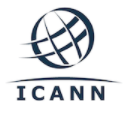- M3AAWG Messaging playlist on YouTube
- Selected Training Videos (also available on www.youtube.com/maawg)
- Selected Keynote Videos (also available on www.youtube.com/maawg)
Below are the M3AAWG published materials related to our messaging anti-abuse work. There is also a Messaging video playlist on our YouTube channel at www.youtube.com/maawg and there are a few selected videos on our website in the Training Videos and Keynotes Videos sections under the Meetings menu tab.
Best Practices
TLS for Mail: M3AAWG Initial Recommendations
M3AAWG recommends three basic measures, including turning on opportunistic TLS, that messaging providers can implement relatively quickly to enhance the security and privacy of their users’ mail.
M3AAWG Network Address Translation Best Practices: The Implications of Large Scale NAT for Security Logging
Provides guidance for system operators, network designers, security professionals and Internet Service Providers about potential issues associated with Large Scale Network Address Translation systems.
MAAWG Vetting Best Common Practices (BCP)
ESPs take on significant risk every time a new customer sends email. A bad client can undermine the sending reputation for the ESP’s other clients as well as inflict abuse at recipient domains. This paper reviews some vetting practices to avoid these problems.
MAAWG Overview of DNS Security - Port 53 Protection
This paper briefly discusses how an DNS attack works, the impact of this threat, proposes a solution and discusses the advantages and disadvantages from a technical, business and regulatory standpoint
M3AAWG Common Best Practices for Mitigating Large Scale Bot Infections in Residential Networks
Note: This M3AAWG best practices paper has been replaced by RFC 6561 Remediation of Bots in ISP Networks, March 2012 from the IETF.
Pages
Public Policy Comments
MAAWG Comments on Department of Commerce Cybersecurity, Innovation and the Internet Economy
MAAWG comments were submitted to the Department of Commerce’s request in September 2010. The DoC site has all submitted comments.
The Department of Commerce’s Internet Policy Task Force undertook a comprehensive review of the nexus between cybersecurity challenges in the commercial sector and innovation in the Internet economy. The Department was seeking comments on measures to improve cybersecurity while sustaining innovation.
MAAWG Response to National Strategy for Trusted Identities in Cyberspace
MAAWG offered comments on the U.S. Department of Homeland Security’s strategy in July 2010
The U.S. Department of Homeland Security’s draft plan is focused on maintaining a secure cyberspace, which is critical to the health of the economy and national security. It outlines how the federal government might address the recent and alarming rise in online fraud, identity theft, and misuse of information online.
MAAWG Comments on ARIN Draft Policy 2010-3 “Customer Confidentiality”
MAAWG submitted comments in March 2010. As recommended by MAAWG and others, ARIN changed course on this topic.
The initial draft policy would have allowed ISPs to hide the true customer of a domain name. The revised Version 2 policy that was implemented recognized the need for the customer name to remain in the SWIP and RWHOIS information.
Pages
M3AAWG Reports
DM3Z Blog
Updates and Commentary from the Messaging, Malware and Mobile Anti-Abuse Working Group
None at this time.
News
News Releases
MAAWG Provides Free Messaging Security Training: Releases DKIM Implementation Tutorial By Leading Experts, Invites Industry to Previously Closed Training Courses
MAAWG Hosts GSMA Security Group in Europe Industry Meeting Attacks Spam Across Platforms, Promotes International, Industry-wide Cooperation
Pages
Articles About M3AAWG
News from Identifier Technology Health Indicators (ITHI)

https://www.icann.org/news/blog/news-from-identifier-technology-health-i...
. . ."First, ICANN will organize another ITHI workshop at the M3AAWG meeting in October in Paris."
EXPERTS TO FCC: CHANGE COURSE ON BROADBAND PRIVACY RULES INDUSTRY GROUPS AND EXPERTS AGREE: THE FCC MUST CHANGE COURSE ON BROADBAND PRIVACY

Fixed Wireless Internet Service Providers Association
http://www.wispa.org/News/wispa_news_06-08-16_Experts_to_FCC
"A coalition of industry groups including WISPA, CTA, CTIA, and US Telecom today published a joint article in opposition to the FCC’s proposed new rules for broadband privacy protection . . . The Messaging, Malware and Mobile Anti-Abuse Working Group similarly warned that the rules as currently framed could inadvertently undermine cooperation and communication needed to secure the web from malware, viruses and hackers online. . . "



